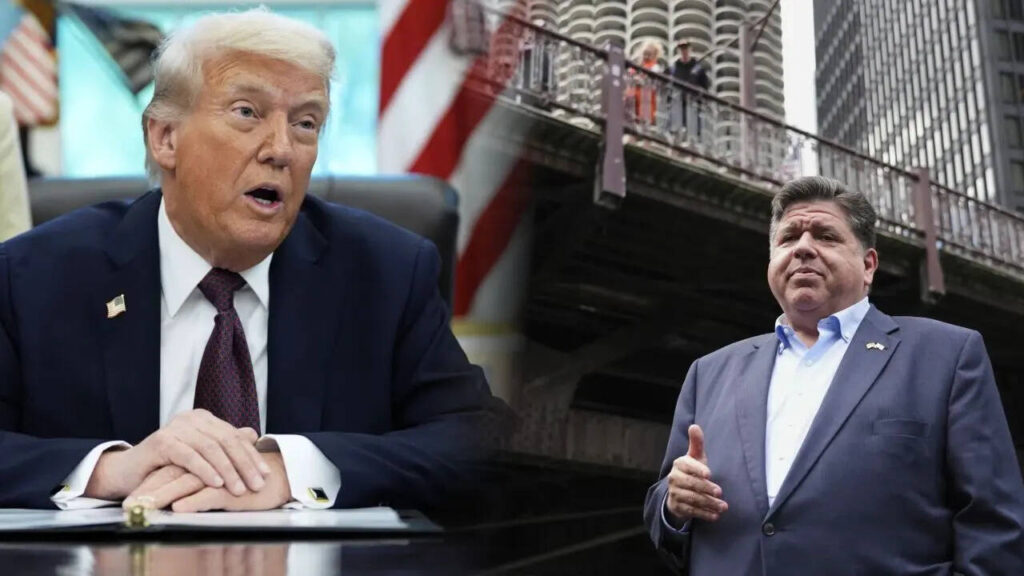In an on‑camera exchange, Pritzker called the president “unhinged” and a “wannabe dictator,” and said directly to Mr Trump: “If you come for my people, you come through me.’
Photo : AP
President Donald Trump’s latest social media post set off fresh alarms in Chicago and across Illinois on Wednesday, calling for Governor J.B. Pritzker and Mayor Brandon Johnson to be jailed for allegedly failing to protect Immigration and Customs Enforcement officials. The remark comes amid a heightened federal presence in the city, including Texas National Guard troops who arrived Tuesday, alongside 300 Illinois National Guard members federalised under Secretary of Defense Pete Hegseth’s orders for a 60‑day deployment. Local leaders immediately framed the statement as an unprecedented political escalation.
The ongoing tensions follow months of complaints from the White House about Chicago’s crime rates, despite city statistics showing a recent decline. Trump has repeatedly criticised both leaders as weak, while Pritzker and Johnson have pushed back publicly, framing the threats as an attack on democratic governance. Legal challenges, protests, and public statements have become intertwined with the unfolding security measures, underscoring the city’s fraught political landscape.
Pritzker Responds: Defiance and Determination
Governor Pritzker took a defiant tone in response to the threats, calling the president “unhinged” and a “wannabe dictator.” Speaking to reporters, Pritzker said, “If you come for my people, you come through me. So come and get me,” a statement that quickly went viral across social media platforms. The governor’s comments reflect both a legal and moral stance, signalling his determination to resist what he and local officials see as federal overreach.
On X, Pritzker called on residents to “stand up and speak out” against the administration’s actions, framing the issue as part of a broader pattern of authoritarian behaviour. Mayor Johnson echoed these sentiments, highlighting that this is “not the first time Trump has tried to have a Black man unjustly arrested,” reinforcing local concerns about political intimidation. Both leaders have promised to pursue every legal avenue to resist the deployment of federal forces without consent.
Legal Battles and Protests Heat Up
The state of Illinois filed a lawsuit on Monday seeking to block the federalisation of National Guard troops in Chicago, following judicial setbacks for the Trump administration elsewhere, including Portland, Oregon. Civil rights groups, journalists, and unions filed a separate suit Tuesday, alleging that federal law enforcement had violated First Amendment rights during protests outside ICE facilities. These legal efforts are intertwined with a tense environment on the ground, where federal and out‑of‑state troops have created unease among residents and demonstrators alike.
Legal experts say the unfolding events present complex constitutional questions under the Insurrection Act, as Trump has repeatedly suggested invoking it if governors or courts block deployments. Meanwhile, Illinois and other Democratic states have criticised the administration for bypassing local authority and threatening elected officials, framing the issue as a litmus test for federal-state relations in the modern era. For residents, commuters, and protesters, the conflict has blurred lines between politics, law enforcement, and civil liberties, with uncertainty remaining over the immediate impact on safety and daily life.



